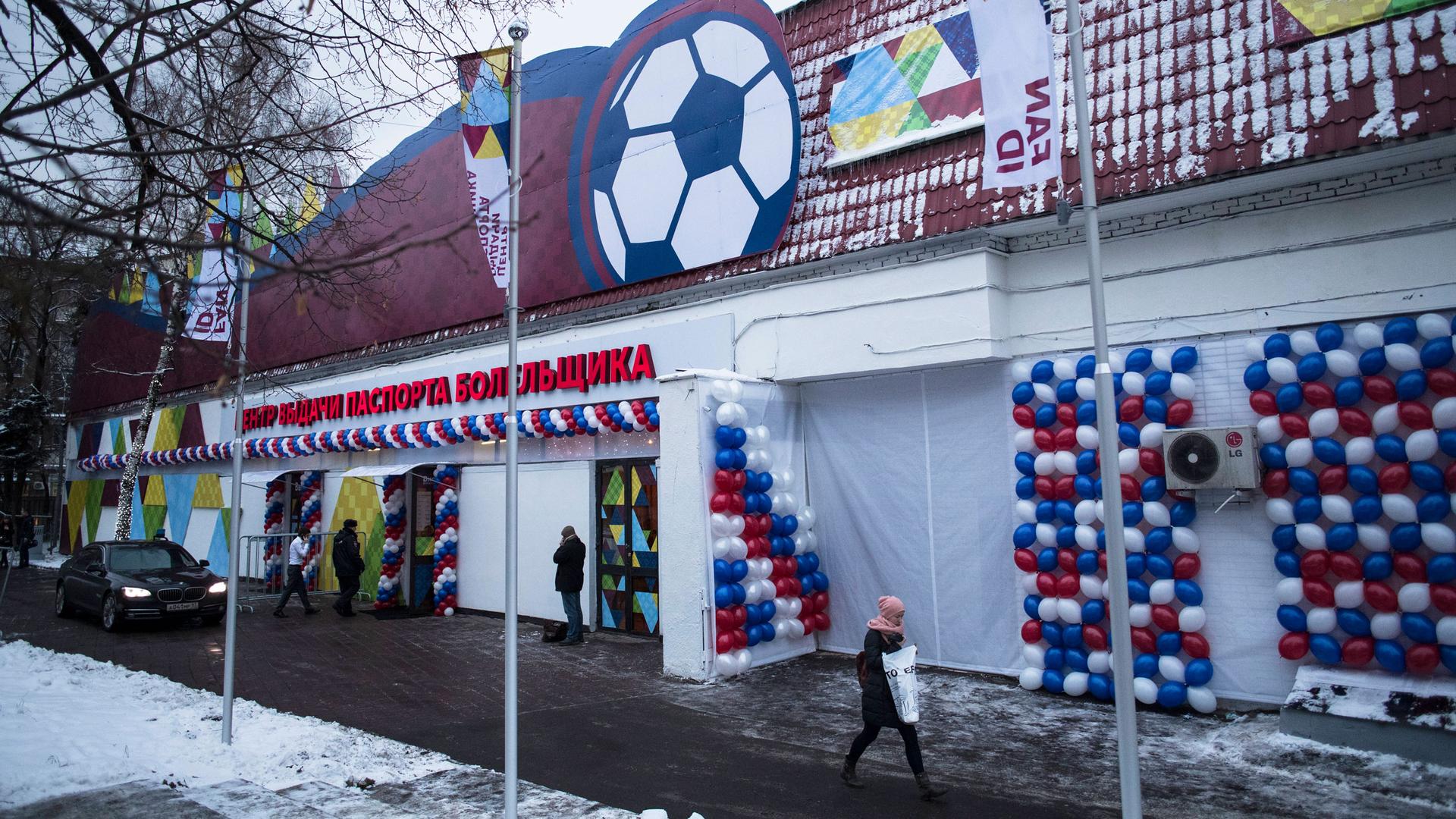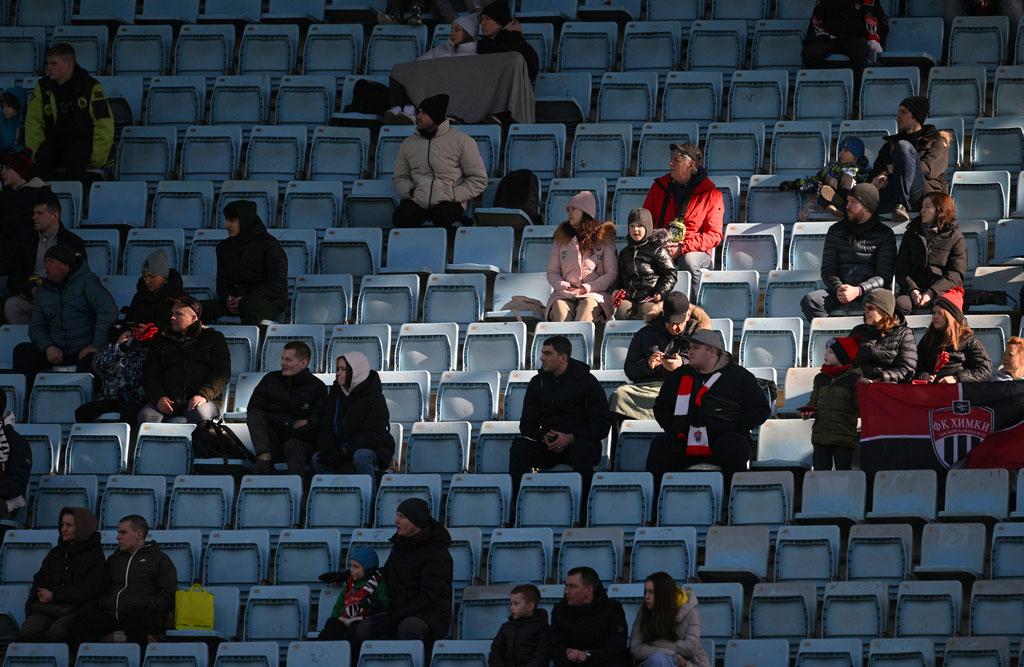In Russia, soccer is by far the most popular sport — fans often pack stadiums in their team’s scarves, waving flags and singing their team’s song.
And the country even hosted the men’s World Cup in 2018.
But a new policy known as the Fan ID law has sports fans annoyed — and many see it as a new form of authoritarian surveillance.
“The law is very simple, without Fan ID, you can’t get into the stadium, you can’t get tickets into the football match,” said Irina Borogan, an expert on Russia’s security services, based in London.
Fan IDs have been implemented sporadically in the past. But the Fan ID law was adopted last summer and implemented gradually. First, five stadiums required Fan IDs and, as of this year, all soccer stadiums now require it.
“To get Fan ID, every Russian citizen has to be registered at the special government website. It means you provide all information about you to the government,” Borogan said.
The state says it’s about public safety and security. But Russian soccer fans aren’t buying it.
At a recent game at the Spartak Moscow soccer club, fans were heard chanting, “Fan ID is killing soccer!”
There are already facial recognition cameras at soccer stadiums. People are now afraid of additional state surveillance, Borogan explained.
“That’s why they are against this law, and that’s why it prompted a lot of protest from the football spectators and the football fans,” Borogan said.

She said the war in Ukraine is another factor.
A lot of young men are trying to avoid the draft, and they are not inclined to share all of their personal information with the state.
Ilya Chicherov, a Russian sports attorney, said the Fan ID system is arbitrary, and it’s very difficult to appeal the decision if a sports fan applies and gets declined. Virtually all appeals are rejected or ignored.
“The law says that if there is information that you have intention to commit something not very good at the stadium, that’s a reason not to give you that Fan ID and to allow you to the stadium,” Chicherov said.
Some analysts speculate that Russian security services are targeting those with a record of opposition.
“They want to make life less comfortable for people who are not OK with the governmental policy,” Chicherov said.
Since the implementation of the Fan ID system, Russian soccer teams have seen a big drop in attendance.
Fan groups across Russia are boycotting matches where Fan ID is required, and some prominent soccer personalities are speaking out.
Leonid Slutsky, a former coach of Russia’s national team, said that because of the new Fan ID, he’s no longer going to matches in person.
Alena Popova, a Russian opposition politician now based at the Wilson Center in Washington, said the Fan ID policy is all about surveillance.
“I’m against the creation of the total surveillance machine in my own country,” she said.
Popova said it’s highly unlikely that the government will back down. The Russian government takes a hard line against all forms of dissent.
But Popova said soccer fans are a tough group to silence.
“Protest rallies are prohibited now in Russia, so they are the only community with the chance to protest and they use that for more than 100%, so they showed many, many people that you can protest,” she said.
Popova said she hopes that Russian citizens will take notice.
The World is an independent newsroom. We’re not funded by billionaires; instead, we rely on readers and listeners like you. As a listener, you’re a crucial part of our team and our global community. Your support is vital to running our nonprofit newsroom, and we can’t do this work without you. Will you support The World with a gift today? Donations made between now and Dec. 31 will be matched 1:1. Thanks for investing in our work!
